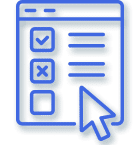What does an Addiction Counselor in Georgia do? What is Their Job Role?
The government of the State does not license Georgia substance abuse counselors. In Georgia, alcohol drug abuse certification is voluntary, and the private credentialing agencies are accepted as authoritative sources of professional credentials. This means that it is not required to become a certified substance abuse counselor in order to work in the field. These credentials certify a level of competency based on education, experience, and training. There are two primary organization in the state that provides certification, credentials, renewals, continuing education requirements, and ethical compliance. The Alcohol and Drug Abuse Certification Board of Georgia (ADACBGA), and the Georgia Association of Addiction Counselors (GACA).
The ADACBGA is a member board of the International Certification & Reciprocity Consortium. It offers credentials and certification. The board can accept credentials from out of state counselors and promote acceptance of Georgia Counselors outside the state.
The GACA is a Georgia association affiliated with the NAADAC (National Association of Alcohol and Drug Abuse Counselors). It offers entry-level and full professional credentials including teaching and clinical supervision credentials. The association administers tests, monitors quality, and protects the public interest in responsible care and treatment.
Compare Popular Online Substance Abuse Counseling Programs
Overview

Drug and alcohol abuse counseling is an important tool in the State of Georgia to reduce and prevent drug abuse and alcohol dependency. Patients seek therapy services to help them get through addictions. Like many other parts of the US, Georgia has a rising rate of severe drug usage including overdoses and deaths. They contend with illegal drugs, illegal use of legal drugs, alcohol dependence, and co-occurring mental and physical disorders. Treatment and prevention are the pillars of the Georgia approach to reducing drug abuse and alcohol dependency.
Addiction counselors have a large role and a powerful position relative to the patients and families that rely on their professional skills. Professional ethics, cultural awareness, and social responsibility are part of the counselor role. They must engage clients and families, and they must always act with awareness of the client’s overall situation.
Treatment is the top priority for Georgia substance abuse counselors. Prevention is part of the overall mission, and treatment and prevention rely upon communication skills. The counselor must reach recovering addicts, alcohol-dependent persons, families, and the community as a whole to effectively work to reduce alcohol and drug abuse.
Georgia Licensing & Certifications for Associates & Independent Counselors
There are two categories of licenses in the state of Georgia. The state has two licensing authorities, and they have separate structures for alcohol drug abuse certification, credentialing, and monitoring professional responsibility.
The Alcohol and Drug Abuse Certification Board of Georgia
The ADACBOG is a non-governmental organization that issues certifications for substance abuse counselors. The board had three main levels for counselors, namely, the Certified Alcohol and Drug Counselor I(CADCI), the Certified Alcohol and Drug Counselor II(CADCII), Certified Advanced Alcohol and Drug Counselor (CAADC).
CADC I or The Certified Alcohol & Drug Counselor (CADC) is the most widely held professional substance abuse counseling credential. Internationally, there are about 20,000 credential-holders in more than 60 countries. The credential has wide acceptance among employers, public bodies, and insurance providers.
CADC II is a more advanced certification and level of practice than CADC l. The level II requires more formal education and 4000 hours of work experience. All CADC certifications require 300 hours of addiction training in the core counseling functions. Training includes group settings, counseling leadership, and observation skills.
CAADC is also a widely held and recognized credential. Currently, there are about 5,000 CAADC professionals. The CAADC certification represents the capacity to treat complex addiction and dependencies. The holder must demonstrate a thorough understanding of substance abuse disorders and co-occurring mental health disorders. These advanced professionals can use the latest evidence-based practice for simultaneous detection and treatment of substance abuse disorders and associated co-occurring mental health disorders.
The Georgia Association of Addiction Counselors
This private voluntary certification group issues credentials and they monitor the quality of counseling.
Certified Addiction Counselor, Level I (CACI) is a credential that meets the minimum GACA qualifications in Georgia. These counselors demonstrate a wide range of counselor skills, experience, and supervised training. They must pass the NCE examination. Applicants must pass a criminal background check and show that they are clear of pending matters. Persons with past criminal records or probation must present a clear history for the two years prior to the exam.
Certified Addiction Counselor, Level II (CACII) is a certification for addiction counselors who hold a bachelor's degree or higher level of education, and they meet or exceed the level two experience and work requirements.
Counselor-In-Training Certification (CIT) is a temporary, transitional certification. This program helps trainees, and they must complete the training within three years.
Certified Clinical Supervisor (CCS) is a credential for licensed health professionals and senior counselors who supervise newer addiction counselors and provide clinical supervision. It requires five years of practicing experience, two-years of experience providing clinical supervision.
Education Requirements
Counselor-In-Training Certification (CIT)
This is a temporary credential that permits an applicant to work and learn and gain experience for a full credential. It requires a high school diploma or equivalency.
Certified Addiction Counselor, Level I (CACI)
Minimum of HS diploma or GED, 180 contact hours of education in drug abuse and chemical dependency that must also include six hours of ethics education, 18 hours of cultural diversity, and three hours of HIV/AIDS education. A minimum of 100 hours must be within five years of the exam. Applicants can credit up to 90 hours from a college transcript.
Certified Addiction Counselor, Level II (CACII)
Applicants must hold a bachelor’s degree or higher and meet the level two requirements for 270 hours of drug and alcohol-related education. Twenty-seven hours of cultural diversity training and education. The work experience requirement is 6,000 hours with 144 hours of supervised experience. All work experience must be no more than eight years past, and the candidate must pass the Level I or Level II exam.
Certified Clinical Supervisor (CCS)
The CSS role is vital to increasing the number of working counselors. It is a credential for clinicians who supervise addiction counselors and meet the requirements of GACA. The credential requires a CACII rating and specific type of experience at a supervision level. It does not have a minimum education requirement except as qualifying as the CACII which requires a bachelor’s degree or an advanced degree.
CACREP Accredited Online Certification

Two types of accreditation are recognized in the United States; institutional and specialized. Institutional accreditation takes the entire institution into account while the specialized focus on professional preparation programs. The Council for Accreditation of Counseling and Related Educational Programs (CACREP) is a specialized accreditation that focuses on master’s and doctoral degree programs in counseling at colleges and universities worldwide. Only already-accredited institutions are eligible for CACREP review. The review for accreditation will center on programs offering graduate degrees in substance abuse counseling.
Find Your Online Addiction Counseling Program
Choosing a CACREP-accredited program ensures that the program meets the highest of quality standards. Many counseling specialties are accredited bythe CACREP, including addiction counseling. Accredited addiction counseling programs prepare individuals to work with those affected by addictive behavior and their families. Addictive behaviors include alcohol, drugs, food, gambling, sex, and anything else that negatively affects your personal or work life by creating addiction behaviors.
CACREP-accredited programs will focus on treatment models and the phases of addiction including prevention, recovery, and relapse prevention. These 60-semester hour programs will include the application of interventions. When students choose a CACREP-accredited program they can be confident that:
- the program meets or exceeds national standards
- the program will focus on professional counseling rather than psychology oreducation
- the program has an excellent reputation
- CACREP graduates statistically receive higher scores on the National Counselor Examination for Licensure and Certification (NCE).
- the requirements for licensure will be met.
Board of Professional Counselors, Social Workers, and Marriage and Family Therapists
The Georgia Composite Board of Professional Counselors, Social Workers, and Marriage and Family Therapists is a committee of 10 appointees. The mission of the Board is to regulate the practice of licensed Georgian:
- Professional Counselors
- Social Workers
- Marriage and Family Therapists
The Board was created to protect the health, safety, and welfare of Georgia’s citizens. The Board enforces education and training standards for licensure in each field of mental health practice. They enforce a set code of ethics, establish and enforce continuing education requirements, and administer any disciplinary action needed.
Address
214 State Capitol
Atlanta, Georgia 30334
Phone
(844) 753-7825
Website Address
http://sos.ga.gov/index.php/licensing/plb/43
Licensure:
- Licensed Professional Counselor (LPC)
- Associate Licensed Professional Counselor (LAPC)
Counselor Testing & Examination Process

Applicants can choose to pursue certification with the Alcohol and Drug Abuse Certification Board of Georgia (ADACBGA) or the Georgia Addiction Counselors Association (GACA). The Board follows the International Certification & Reciprocity Consortium testing style with evidence-based methods and study. The testing domains used by the board include screening, assessment, and client engagement skills. They test knowledge of the best practices for treatment planning, resource referrals, and team-type collaboration.
The association follows the NAADAA model for core competencies and testing. The Association requires an extensive review and approval of applications before testing. The Association requires the NC AP written exam for CSS certifications, and then the applicant may sit for the CSS written exam. Applicants must demonstrate educational attainment in alcohol and drug abuse counseling and knowledge of Professional conduct. They must formally accept the code of Ethical Responsibilities.
Clinical Supervision Explained

Counselors must get alcohol drug abuse certification and training, and they also have the benefits of their education and work experience. Clinical supervision is the finishing process for professional counselors; it is a guided learning process. Paired with a senior supervision level counselor, the supervised counselor gets an immersion in a learning environment. Drug abuse education gets its test in real-life applications in the clinical settings where counselors must interact with patients and their families. The role of the counselor extends to education. In all the roles that the counselor must perform, communications are key. They must be able to form concepts and communicate about them to colleagues, team members, and patients.
In clinical supervision, the primary method is observation and feedback, but the environment is necessary too. The learning environment must encourage new ideas, professional and personal growth, and critical self-assessment. The counselor must develop and strengthen critical thinking skills. The learning cycle for a substance abuse counselor does not end with exams and certification. The professional learning experience is a career-long undertaking that must be self-sustained.
Renewal and Continuing Education
The credentialing authority sets the terms of the credential and the requirements for remaining in good standing.
The GACA Renewal and CEU
The GACA requires 40-hours of continuing education during the two-year term of a credential. The GACA requires 40 hours of continuing education. Twenty (20) hours must be GACA approved classroom work; the balance must have six hours of ethics and the remaining 14 hours can be other counseling or counseling-related subjects. GACA renewal requires 24 hours of clinical supervision by a CCS credential holder. The CACII does not have a supervised hours requirement.
The ADACBGA Renewal and CEU
The Board offers a list of approved CEU courses and workshops that each have a master's level presenter and offer one of the 12 core domains as the primary subject. Renewal requires 40 hours within the two-year term. Six hours of ethics for every applicant, and supervision hours for the CSS level.
Potential Counselor Career Path Options
- Addiction Counselor
- Alcohol and Drug Addiction Counselor
- Behavioral Health Specialist
- Certified Addiction Drug and Alcohol Counselor
- Chemical Dependency Counselor
- Mental Health Counselor
- School Counselor
- Substance Abuse Counselor
Associations & Organizations
- Georgia Addiction Counselors Association (GACA)
- Association for Addiction Professionals (NAADAC)
- Alcohol and Drug Abuse Certification Board (ADACBGA) is a member of the IC&RC. It offers certification, testing, training, drug and alcohol education, and continuing education in Georgia.
- International Certification & Reciprocity Consortium (IC & RC)- The IC &RC is a credential and certification organization that also provided reciprocity between member chapters so that credentials recognized in one state can get acceptance in other member states.
